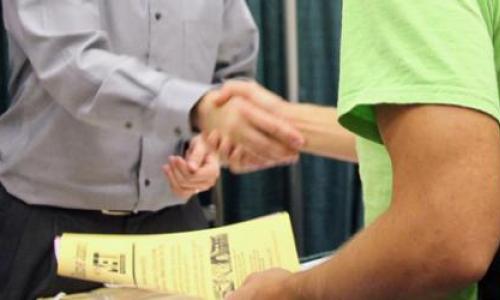
I'm not really a fan of telephone interviews. I find them more intimidating than face-to-face interviews. For one, I can't see the interviewer: some may find this as an advantage, but I find that not seeing the non-verbal cues from the interviewer can be a disadvantage. When answering questions, you can tell from the interviewer's body language whether you've provided enough information.
Thankfully, I've only been subjected to few phone interviews so far. I'd say that most of my phone interviews have been great; some, however, were huge disasters! This got me to thinking then: how does one ace telephone interviews?
Impromptu Phone Interviews
From my personal experience, there are really two types of phone interviews. The more difficult ones are the impromptu ones - those calls you get from the HR department. Although the HR person might simply want to confirm if you're still interested with the position, the call can easily turn into a formal interview if you agree to answer a few more questions.
In the ideal world, you should be prepared for an impromptu interview at any time. But rather than being caught off guard, politely decline the interview if you're not 100% prepared. You might want to ask the interviewer to call back. Suggest a day and time that will work for you. Alternatively, ask for a number that you can call back later.
The bottom line is to not feel pressured to do the interview right there and then unless the interviewer happens to call you at the perfect place and time. Explain politely that the interviewer caught you at a bad time. It's better to delay the interview than to be unprepared for it.
Scheduled Phone Interviews
For the most part, the rules for face-to-face interviews also apply to regular phone interviews. Here are some additional tips to consider:
You want a reasonably quiet room. If you're using a cell phone, be sure that the room has strong reception. Also, make sure your cell phone has enough battery power to last throughout the interview.
Try your best not to interrupt the interviewer. If something's unclear, take notes and delay asking your questions until the interviewer is done speaking. To make sure that the interviewer isn't interrupted throughout the interview, you might need to temporarily disable call waiting or other similar features on your cell phone.
Although the interviewer can't see you, it is possible to project enthusiasm during a phone interview simply by smiling. Your voice tone, inflection, etc. will also tell the interviewer a lot about you.
Maintain the same level of formality that you normally would for a face-to-face interview. Remember: the employer might be using the phone interview to decide who to invite for an on-site interview, so there's something at stake during a phone interview.
For a variety of factors such as the reliability of your cell phone provider's network, it is perfectly normal during a phone interview to miss some of the things that the interviewer is saying. If this happens, don't hesitate to ask for clarification. This alternative is better than providing an answer that has nothing to do with the question.
Also, keep your résumé, a copy of the job description, etc. within arm's length for reference. If you have prepared some answers beforehand, however, don't read your answers aloud. The interviewer can spot this. Create bulleted lists to cover major topics instead to avoid reading directly from your notes.
If you need a few seconds to think about the question, let the interviewer know. Something along the lines of "I need a minute to think about that" will suffice. In a phone interview, the interviewer can't see if you're still thinking about a question, unlike a face-to-face interview where this will be easily apparent. Aim to give concise but complete answers.
I got this tip from a former boss. If you're standing up during a phone interview, you may feel more confident about yourself and about the interview. The interviewer will likely be seated down, so you immediately have a level of control over the interview simply by standing up. Try this the next time you have an interview - it may give you the confidence boost you need to get to the next step.
You might need to speak slower than usual, or you might need to adjust the volume of your voice in order to project just the right amount of enthusiasm. The only way to know these is to practice with a friend. If possible, ask your friend to record the conversation so you can review it afterwards.
Some of the basics of a face-to-face interview - for instance, asking what the next steps would be or sending a thank you note - also apply. As odd as it sounds, you should also consider dressing professionally for the phone interview. Personally, I find that when I dress the part, I project a more professional image even if the person can't see me.
With the number of applications that companies get and with the convenience and savings that phone interviews provide, it is very likely that you'll get interviewed this way at one point during your job search. With the right amount of preparation, you can ensure success and increase your chances of getting to the next step.
Beyond the Blog
- Do you need a practice interview? Contact Career Services to book a practice interview or to get individual help with interview preparation strategies.
- Check out the OLC's Interview Question Database to get you prepared for that upcoming interview!















